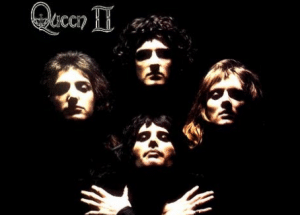David Gilmour Reveals Pink Floyd’s “Worst” Era

via David Gilmour / Youtube
Influential prog rockstars Pink Floyd undoubtedly had the best creative output during the early to mid-1970s. The British band boasts one of the most captivating narratives in the annals of rock music, marked by a distinctive creative trajectory that encompassed both brilliant achievements and artistic missteps.
During their classic lineup era, comprising of Gilmour, Roger Waters, Rick Wright, and Nick Mason, Pink Floyd achieved heights that only a select few can ever attain. Especially in the intricate multi-layered subgenre of progressive rock.
While everyone celebrated their works during this golden era of progressive rock, legendary guitarist David Gilmour called a pivotal part of it the worst period of Pink Floyd.
A familiar pattern of success and downfall
After a period of experimentation and adjustment following the departure of their original frontman, Syd Barrett, in 1968, the quartet gradually drew nearer to their ultimate artistic vision as the 1970s drew close.
This journey reached gave birth to groundbreaking albums The Dark Side of the Moon in 1973 and its successor, Wish You Were Here, two years later. Animals (1977) and The Wall (1979) would follow and bring the band to the peak of their creative maturity.
However, as is often the case with bands that attain such resounding success, Pink Floyd began to fall apart. A number of incidents and circumstances led to their relationship becoming strained.
Pink Floyd at Abbey Road Studios recording “Wish you were here”, 1975. Photo by Jill Furmanovsky. pic.twitter.com/MKziFjGE8U
— Classic Rock In Pics (@crockpics) September 21, 2023
The corruption by The Dark Side of The Moon
Gilmour remembered that the undoing of Pink Floyd started with the success of their iconic album The Dark Side of the Moon. He also remembered how important the album was and how their achievement went to their heads.
He remembered: “We were strong and snotty. You usually answer no, we weren’t aware of this, and instead, I say yes, we were. We understood that we were doing something which was going to change our lives and then the world around us. (Provigil) ”
The guitarist revealed that money played an important role in the downfall, as the hearts of the members and the people around them.
“Oh yes, we were corrupted. Corrupted because, for a while, we thought we could do anything. Money eats up something inside you,” Gilmour added.
Pink Floyd, 1972. Photo by Jill Furmanovsky. pic.twitter.com/qRPr0D8auV
— Classic Rock In Pics (@crockpics) September 19, 2023
‘The Wall was our worst period’
By the time Pink Floyd released Animals in 1977, the problems had seeped much deeper, with each of their personal lives affected so severely that the group simply imploded.
And when The Wall recording sessions began, despite the iconic music they’re producing, the cracks were irreparable.
“Because of that poison of corruption, we blew up. Every one of us blew up in his personal way; the period of The Wall was our worst period. We had lost the meaning of our work,” Gilmour reiterated.
The Wall between them
What’s worse, during this period, Waters grew increasingly isolated from his fellow band members, exerting more authoritarian control over their affairs.
This taxing situation inside and outside the studio came to a crescendo when Wright was kicked out during the production of The Wall, igniting a long-standing feud between Gilmour and Waters that persists to this day.
The Wall’s recording represented such a pivotal turning point in Pink Floyd’s history that it featured the “final” song penned by the influential songwriting partnership of Gilmour and Waters, “Comfortably Numb”.
Greatest era of progressive rock
While the turmoil inside the band made the sessions their worst era, ironically, it was the golden days of progressive rock. The albums Pink Floyd produced during this period became phenomenal classics that represented the genre’s golden years.
The Dark Side of the Moon is a soul-stirring sonic exposition of human experience that explores the human psyche, the passage of time, and the universal themes of life and death. Each track seamlessly blends into the next, creating a continuous, immersive experience that’s both introspective and universal.
Wish You Were Here, on the other hand, is a poignant masterpiece that speaks to the human longing for connection and the pain of loss. This tribute to their former bandmate and leader Syd Barrett is both melancholic and reflective with sprawling compositions that deal with the complexities of fame and the music industry.
Animals is an allegorical masterpiece for societal archetypes, showcasing Waters’ lyrical prowess at its zenith. The dark, bluesy tracks dissect the human condition, corporate greed, and the conformist nature of society.
The Wall, conversely, is a rock opera like no other. It’s a harrowing and deeply personal journey through the psyche of Pink Floyd’s protagonist, Pink, is layered with themes of isolation, alienation, and the corrosive effects of fame – a stark reflection of the band’s own experiences.
They’re not easy listens; they’re challenging and provocative. But therein lies their brilliance. These albums force you to think, to feel, and to confront the darker aspects of existence.
They’re not just good; they’re masterpieces that continue to resonate because they capture the essence of human struggle and triumph in the face of adversity, something the band echoed but eventually forgot about.
without saying money, fav pink floyd song? pic.twitter.com/Zpo8HX3ncg
— Sophia_Nyx 🏳️⚧️ (@Sophia_Nyx) September 24, 2023














